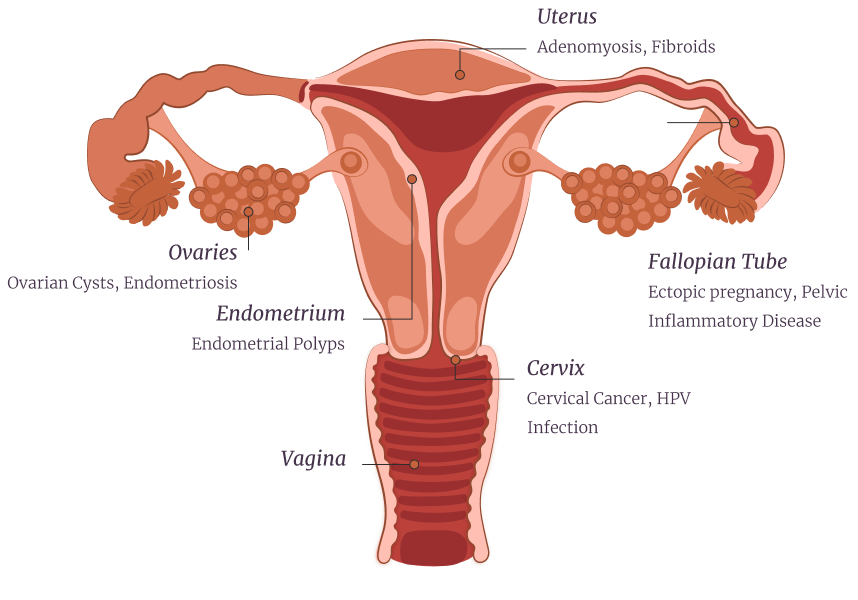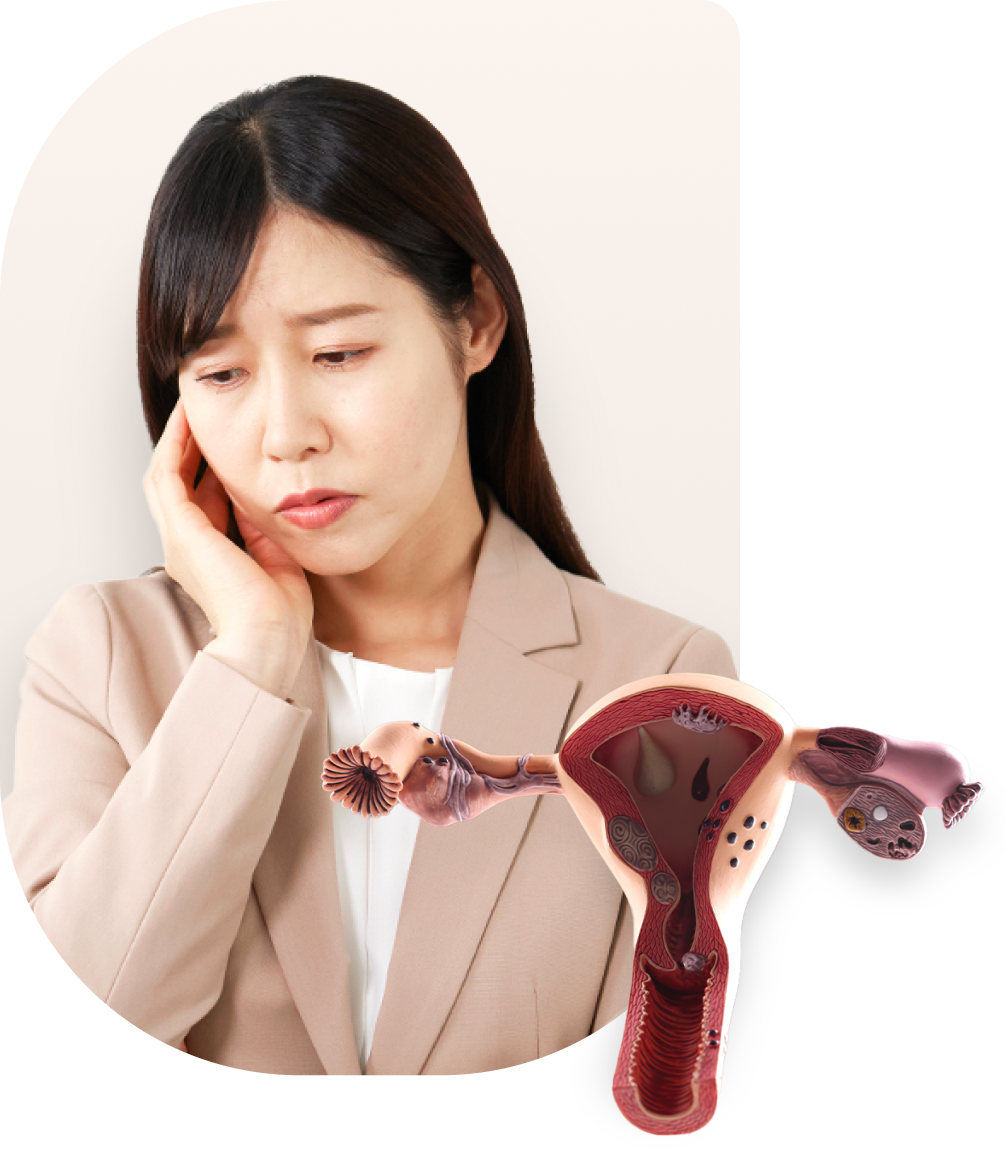
- 38 Irrawaddy Rd, #06-58 Mt Elizabeth Novena Specialist Centre, Singapore 329563

Conditions like endometriosis, fibroids, and ovarian cysts can disrupt your daily life and even affect your fertility. These issues are often left undiagnosed or untreated, leading to ongoing distress.
Conditions like endometriosis, fibroids, and ovarian cysts can disrupt your daily life and even affect your fertility. These issues are often left undiagnosed or untreated, leading to ongoing distress.




Adenomyosis is a condition where the tissue that normally lines the uterus grows into the uterine muscle, causing the uterus to enlarge.
Symptoms:
Endometrial polyps are small, benign growths that form on the inner lining of the uterus (endometrium). They can vary in size and number and are typically noncancerous, though some may develop into cancer over time.
Symptoms:
Menopause care focuses on managing the physical and emotional changes that occur when a woman stops having menstrual periods, marking the end of her reproductive years.
Symptoms:
Period problems refer to irregularities in the menstrual cycle, including heavy or prolonged bleeding (menorrhagia), painful periods (dysmenorrhea), missed periods (amenorrhea), or irregular cycles.
Symptoms:
Birth control refers to various methods used to prevent pregnancy, including hormonal options (like pills, patches, implants, and injections), barrier methods (condoms and diaphragms), intrauterine devices (IUDs), and permanent solutions (like sterilization).
Ovarian cysts are fluid-filled sacs that develop on or inside the ovaries. They are common and often harmless, with many resolving on their own without treatment. In some cases, cysts may rupture or twist, leading to severe pain and requiring emergency medical attention.
Symptoms:
Polycystic Ovarian Syndrome (PCOS) is a common hormonal disorder that affects women of reproductive age. It is characterized by irregular menstrual cycles, the presence of multiple small cysts on the ovaries, and high levels of androgens (male hormones). Women with PCOS may also experience insulin resistance, increasing the risk of developing type 2 diabetes and other metabolic conditions.
Symptoms:
Uterine fibroids are noncancerous growths that develop in or on the walls of the uterus. While the exact cause is unknown, fibroids are influenced by hormonal changes, particularly estrogen and progesterone.
Symptoms:

Overactive bladder (OAB) is a condition characterized by a sudden, uncontrollable urge to urinate, often resulting in frequent urination and, in some cases, urinary incontinence (leakage). OAB occurs when the bladder muscles contract involuntarily, even when the bladder is not full.
Symptoms:
Pelvic organ prolapse occurs when the muscles and tissues supporting the pelvic organs (such as the bladder, uterus, or rectum) weaken, causing one or more of these organs to drop or press into the vaginal canal.
Symptoms:
Urinary incontinence is the involuntary leakage of urine, meaning a person cannot control the release of urine. It can vary from occasional minor leaks when coughing or sneezing (stress incontinence) to a sudden, intense urge to urinate followed by involuntary urine loss (urge incontinence).

Infertility is the inability to conceive after one year of regular, unprotected intercourse, or six months for women over 35. It can affect both men and women and may result from various factors, such as hormonal imbalances, ovulation disorders, blocked fallopian tubes, uterine abnormalities, low sperm count, or poor sperm quality.
Dr Ng Kai Lyn [MBBS (Singapore), MMed (Singapore), MRCOG (UK), FAMS (Singapore)] is a Consultant Gynaecologist with sub-specialty expertise in urogynaecology and minimally invasive surgery, as well as a clinical interest in fertility. Prior to moving to private practice, she worked at National University Hospital, Singapore. She is the recipient of Healthcare Manpower Development Plan award from Singapore Ministry of Health and completed a prestigious Urogynaecology Fellowship at an International Urogynaecology Association accredited institution. Besides advanced laparoscopy, she is well versed in managing pelvic organ prolapse, urinary incontinence, overactive bladder, uterine fibroids, ovarian cysts, endometrial polyps, endometriosis and fertility issues.
Dr Ng’s philosophy in clinical practice lies in achieving the best standard of care for her patients through compassionate treatment, communication, patient empowerment and informed choice.



